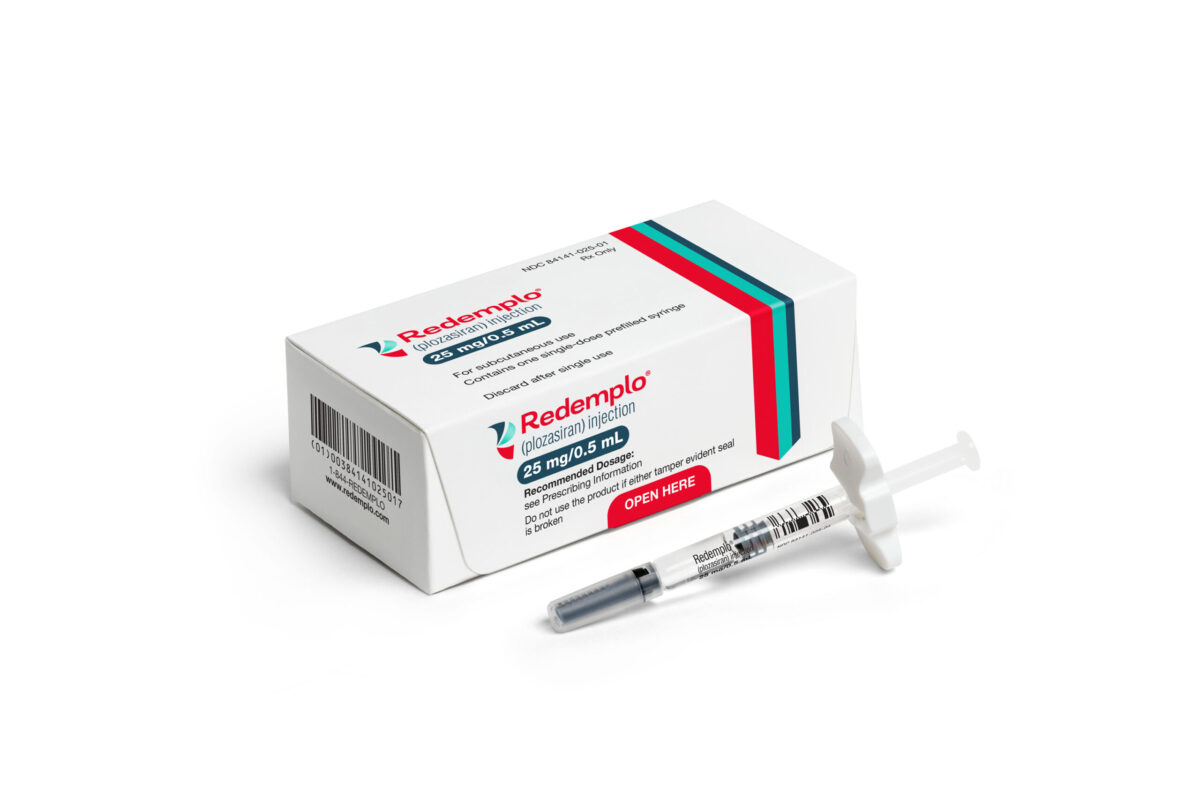GlaxoSmithKline’s (GSK) ViiV Healthcare — which focuses on HIV treatments and prevention — has received approval from the US Food and Drug Administration (FDA) for its highly anticipated injectable HIV treatment. The long-acting injection can help relieve HIV patients from having to take a daily cocktail of pills.
The injectable treatment is called Cabenuva and contains two drugs in its injectable formulation — cabotegravir, an integrase inhibitor, and rilpivirine, a second-generation non-nucleoside reverse transcriptase inhibitor.
The combination treatment is the world’s first complete, long-acting, injectable regimen for HIV-infected adults who are virologically suppressed.
Cabenuva is injected once a month and could replace current standard antiretroviral medications that are taken daily.
Related: What the Glycome Can Tell Us About Persistent HIV Infection
Current HIV regimens (prior to Cabenuva) involve daily doses of oral pill formulations. Although TaiMed Biologics’ antibody drug Trogarzo is an intravenous formulation that is administered once every 14 days, it must be used in conjunction with other antiretroviral drugs. Moreover, it is only meant for a small, select group of patients resistant to other treatments.
The FDA also approved oral versions of the drugs, namely ViiV’s Vocabria (cabotegravir, tablet formulation) and Johnson & Johnson’s oral Edurant (rilpivirine) to be taken in combination for one month prior to beginning treatment with Cabenuva — known as a “lead-in.” This is to ensure that the medications are well-tolerated before moving to the extended-release injectable formulation.
Cabenuva and Vocabria were granted Fast Track and Priority Review designation by the FDA.
ATLAS and FLAIR Phase III Trials
The safety and efficacy of Cabenuva was established through two randomized, open-label, controlled Phase III clinical trials — ATLAS (Antiretroviral Therapy as Long-Acting Suppression) and FLAIR (First Long-Acting Injectable Regimen) — conducted among 1,182 HIV-infected adults from 16 different countries.
Patients in the studies were virologically suppressed (HIV-1 RNA less than 50 copies/milliliter) prior to initiation of treatment with Cabenuva. Participants were administered the injection intramuscularly in the buttocks once a month throughout the 48-week study periods.
Results from the two trials showed that the extended injectable formulation performed just as well as traditional oral medications to suppress HIV.
In the ATLAS study, after 48 weeks of treatment with Cabenuva, 92.5 percent of patients had undetectable viral loads, compared with 95.5 percent having no detectable loads on traditional three-drug regimens in the same period.
In the FLAIR trial, a 48-week Cabenuva regimen led to virologic suppression in 93.6 percent of trial participants compared to ViiV’s Triumeq (abacavir/dolutegravir/lamivudine) therapy which reached 93.3 percent. Updated data from the trial showed 86.6 percent of Cabenuva users exhibited no detectable viral load at 96 weeks, versus 89.4 percent for those who received Triumeq.
At the conclusion of the studies, patients in both trials continued to show virologic suppression, with no clinically relevant change in CD4+ cell counts from baseline.
The most common adverse reactions of Cabenuva in the trials were injection site reactions, fever, fatigue, headache, musculoskeletal pain, nausea, sleep disorders, dizziness and rash. The FDA advises that Cabenuva should not be used if there is a known previous hypersensitivity reaction to cabotegravir or rilpivirine, or in patients who are not virally suppressed (HIV-1 RNA greater than 50 copies/milliliter).
Opening up Options
Nine out of ten participants in the FLAIR trial preferred the long-acting Cabenuva to their daily oral treatment at week 48. However, these patients specifically volunteered for the clinical trial of the long-acting HIV regimen, making them more likely to be receptive of transitioning to a different therapy.
“In the real world, ViiV expects most people will stick to their existing once-daily oral treatments,” said ViiV CEO Deborah Waterhouse in a news release.
However, Cabenuva offers a choice for a niche but important patient group according to Waterhouse. She added, “We know that there’s a proportion of people who’re living with HIV who really struggle to take a tablet every day, either because they just find it stigmatizing and very challenging that it reminds them that they are living with HIV.”
“Currently, the standard of care for patients with HIV includes patients taking daily pills to adequately manage their condition. This approval will allow some patients the option of receiving once-monthly injections in lieu of a daily oral treatment regimen,” said John Farley, MD, MPH, director of the Office of Infectious Diseases in the FDA’s Center for Drug Evaluation and Research, in a press release from the agency. “Having this treatment available for some patients provides an alternative for managing this chronic condition.”
Cabenuva was actually expected to win FDA approval towards the end of 2019; however, manufacturing issues garnered rejection from the FDA at the time. Since then, Cabenuva received its first global approval in Canada in March 2020, followed by authorization in the EU in December under two separate brand names.












Join or login to leave a comment
JOIN LOGIN